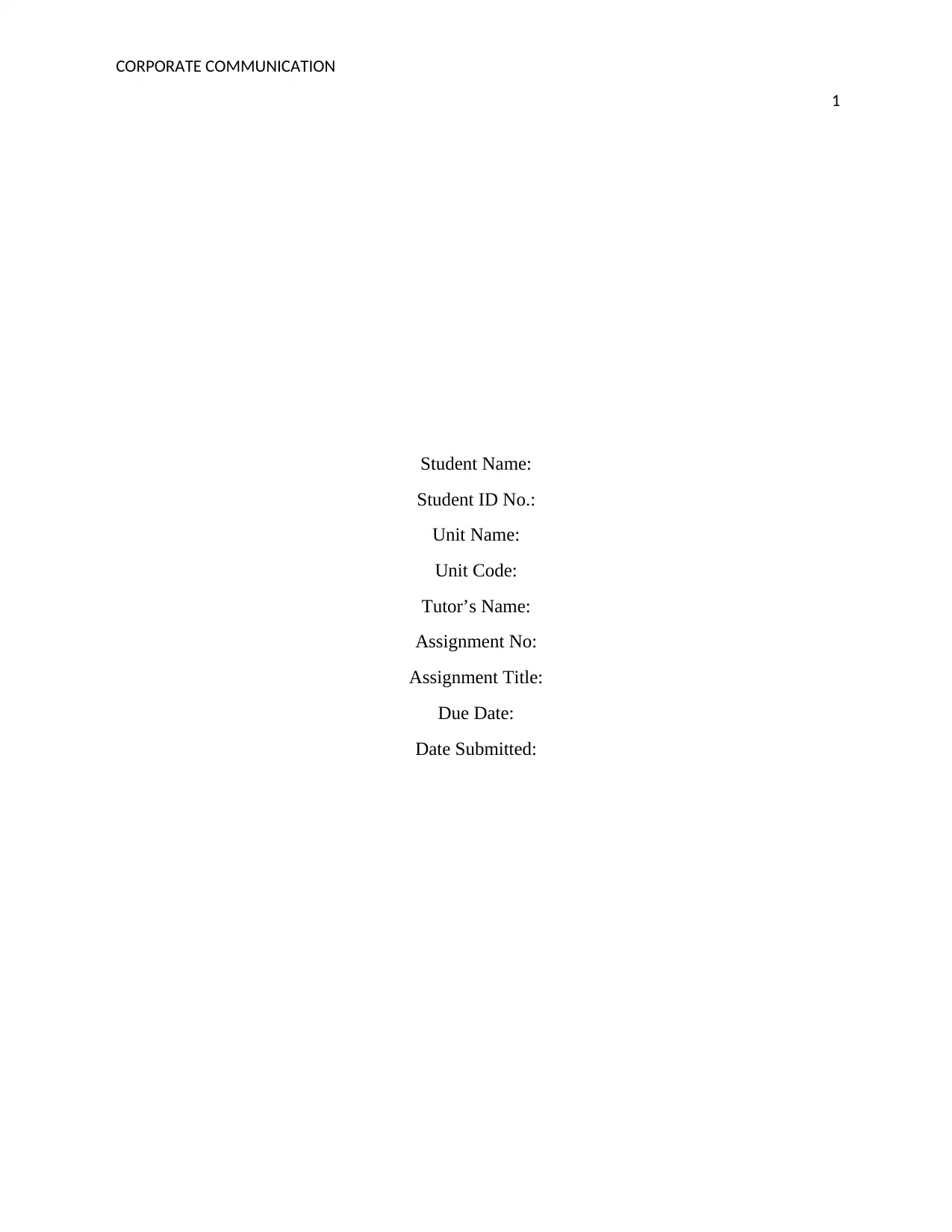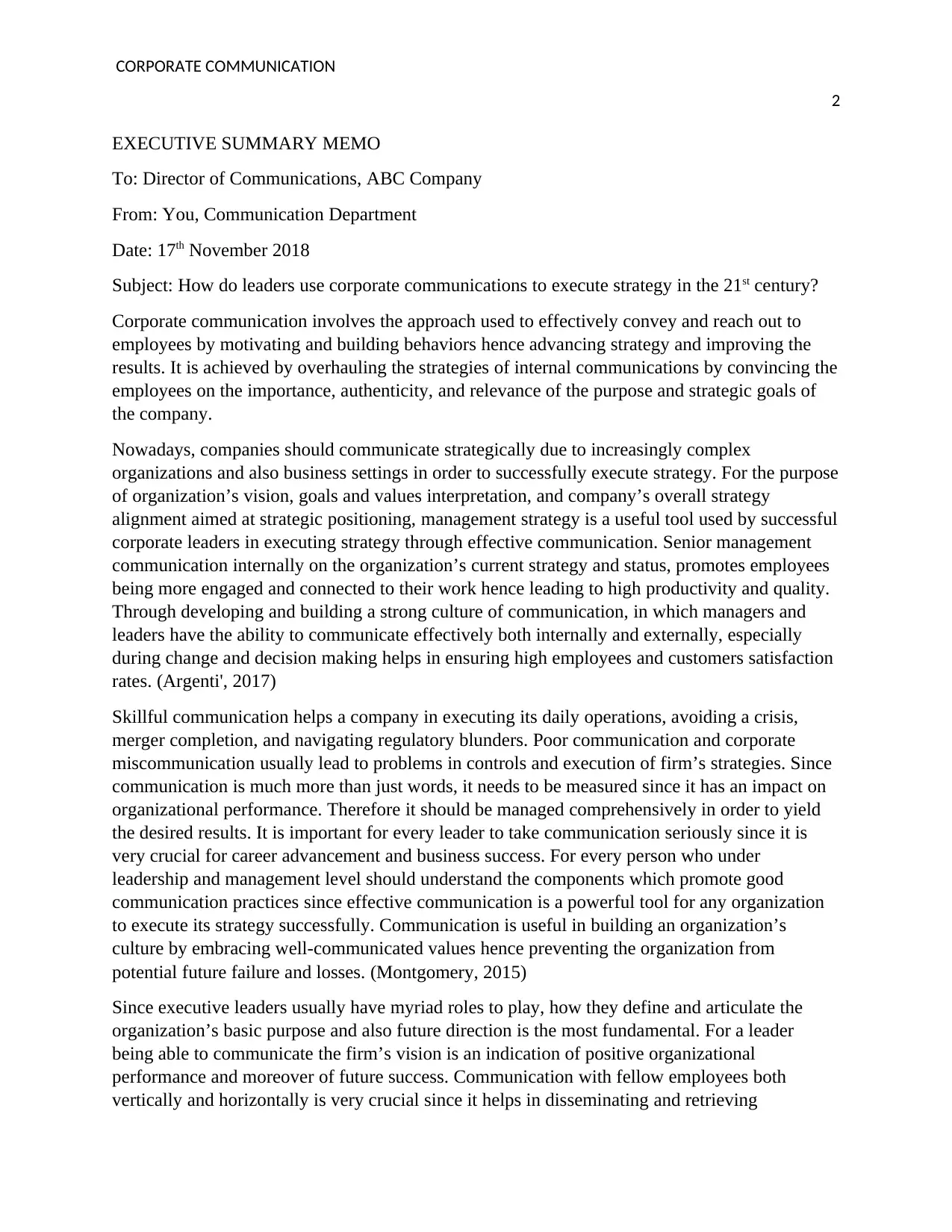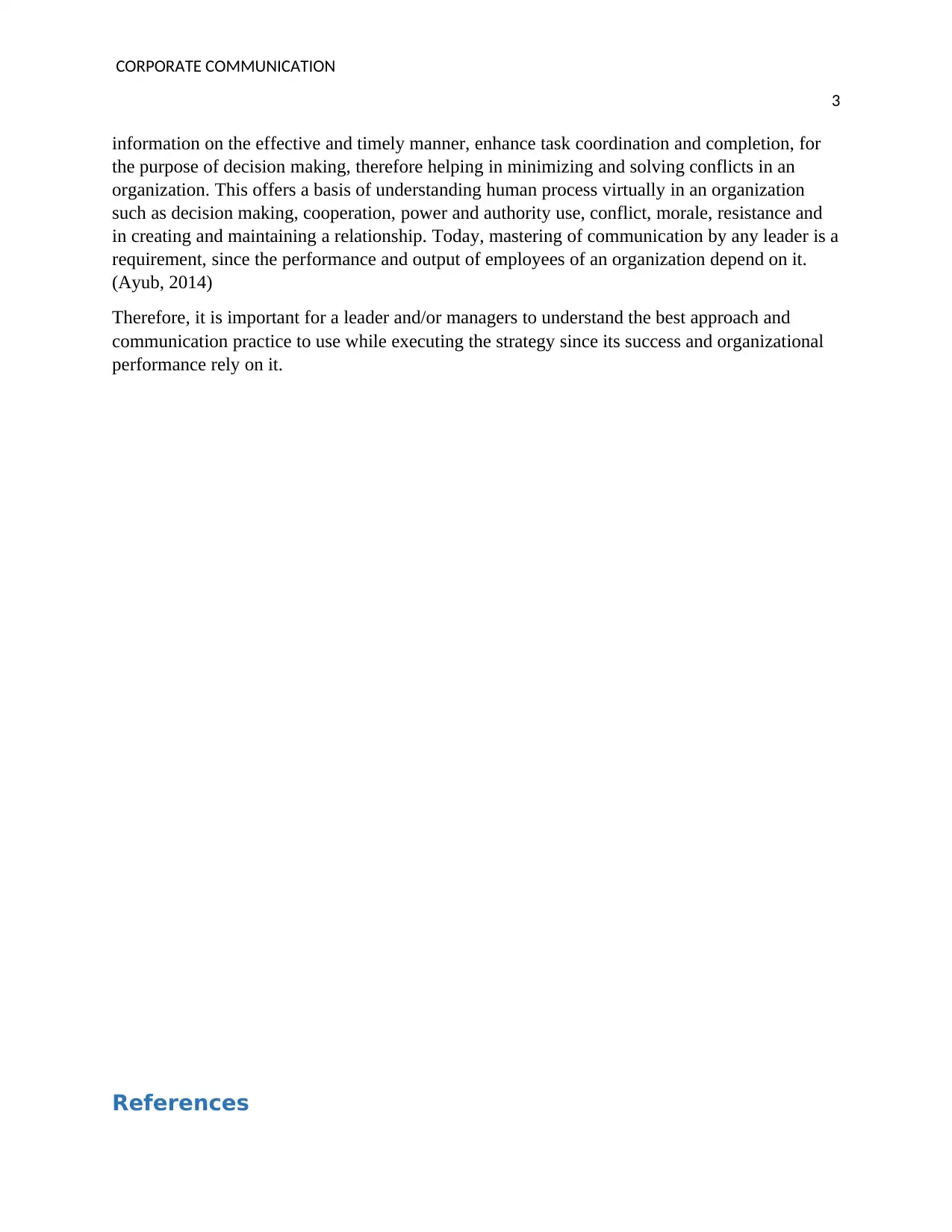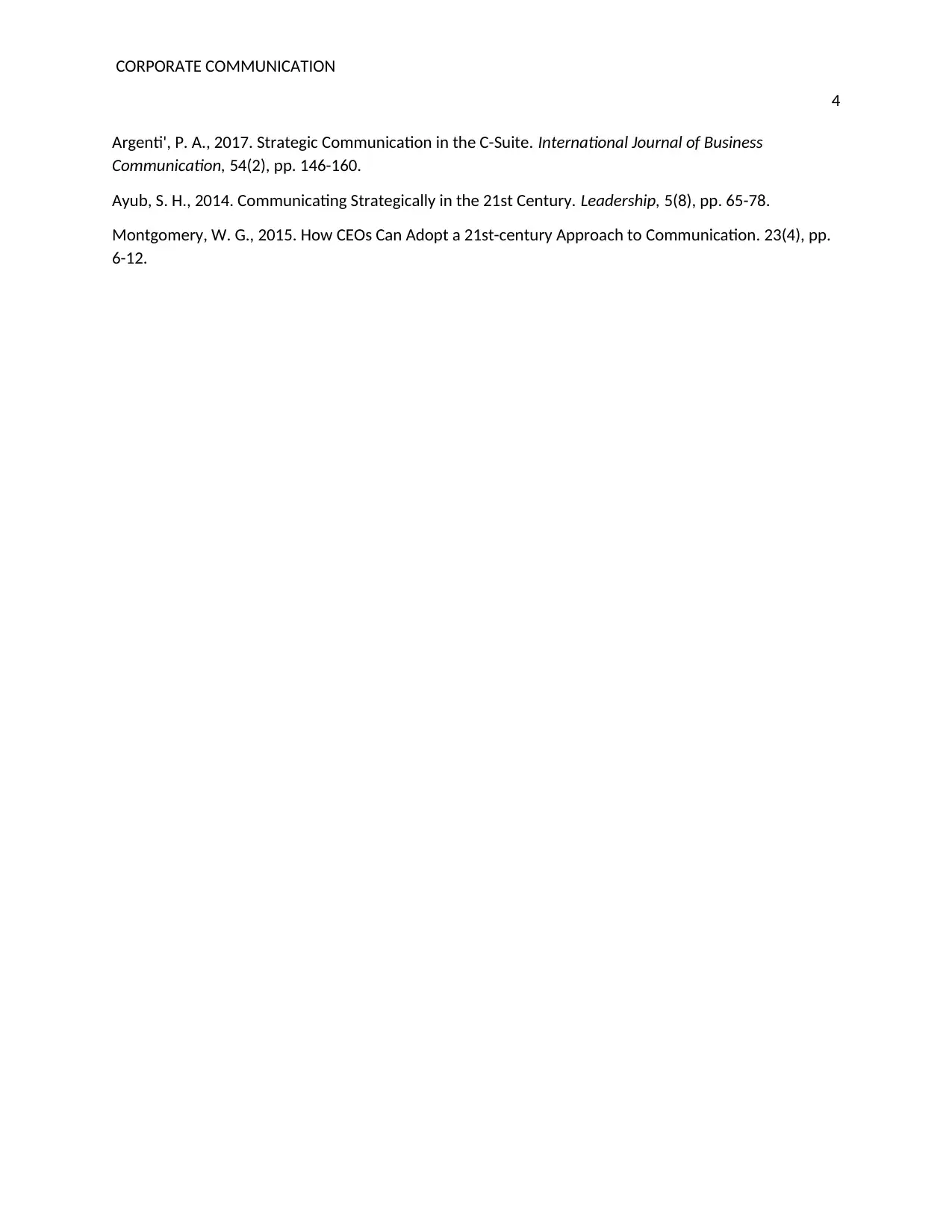MNG81001 Assessment 1: How Leaders Use Corporate Communication
VerifiedAdded on 2023/05/31
|4
|739
|244
Report
AI Summary
This report, prepared as an executive summary memo for the Director of Communications at ABC Company, explores how leaders leverage corporate communication to execute strategy in the 21st century. The report emphasizes the importance of strategic communication in today's complex business environments, highlighting its role in interpreting organizational vision, goals, and values. It discusses how effective internal communication, particularly from senior management, enhances employee engagement and productivity. The summary also covers the significance of skillful communication in daily operations, crisis management, and regulatory compliance. Furthermore, the report underscores the crucial role of communication in building organizational culture and the necessity for leaders to master communication practices to ensure organizational success. It references key academic articles to support its arguments, focusing on communication's impact on organizational performance, employee satisfaction, and the overall execution of strategic goals.
1 out of 4










![[object Object]](/_next/static/media/star-bottom.7253800d.svg)